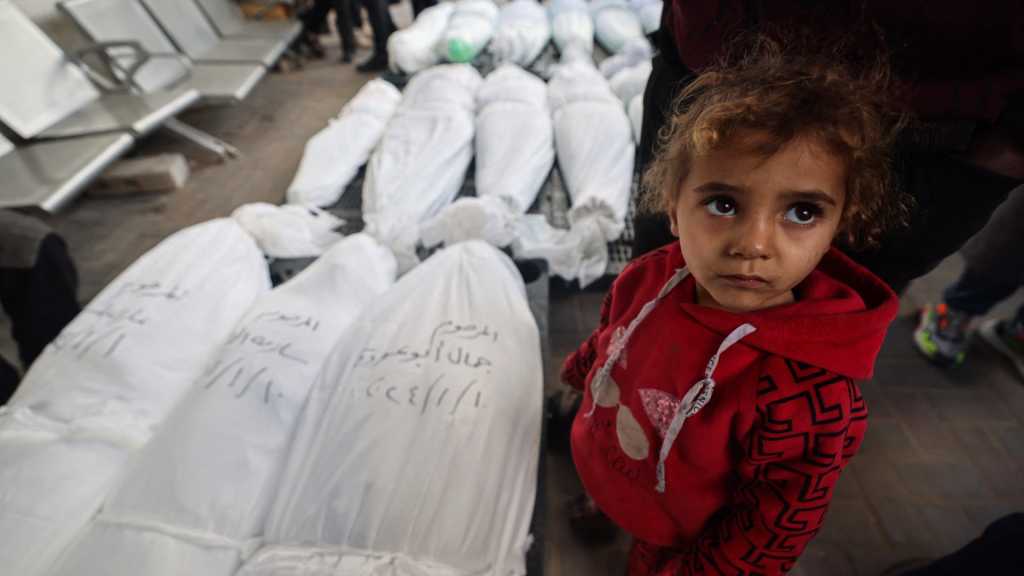Betrayal in the Shadows: Arab Leaders’ Covert Support for ‘Israel’ Exposed in Woodward’s War

By Mohammad Hammoud
Bob Woodward’s international bestseller, War, provides a striking examination of the geopolitical landscape surrounding the Palestinian-“Israeli” conflict and sheds light on the perceived betrayal of Gaza by Arab regimes. Woodward, a renowned investigative journalist and two-time Pulitzer Prize winner, delves into the tacit and overt actions of Arab leaders, suggesting a troubling prioritization of self-preservation and regional stability over solidarity with the Palestinian cause. He asserts that many Arab regimes harbor a desire to see Hamas defeated, raising significant questions about their role in the ongoing Palestinian struggle. This essay explores the themes of betrayal and complicity outlined in War, while addressing the broader implications of these narratives on the Palestinian cause.
Arab Betrayal: A Recurring Theme
Woodward portrays certain Arab regimes as complicit in perpetuating Gaza’s suffering. He claims that several Arab leaders have privately admitted to supporting “Israel’s” actions against Hamas while publicly condemning them. This alleged betrayal underscores the complex and often contradictory nature of Arab politics, where public statements and private actions can diverge significantly. Woodward’s account is based on interviews with key figures in the region, including leaders from Egypt, Jordan, and Saudi Arabia, who reportedly shared their candid views on Hamas.
He details how Arab regimes, particularly those in the Gulf, have grown increasingly wary of Hamas and its ties to the Muslim Brotherhood. These regimes fear that Hamas's influence could inspire similar Islamist movements within their borders, threatening their hold on power. As an offshoot of the Muslim Brotherhood, Hamas poses ideological and political challenges to authoritarian regimes in the Arab world. By publicly condemning “Israel's” actions while privately supporting measures to curb Hamas's influence, these regimes aim to balance their domestic and international interests.
A key allegation in War is that Arab states, particularly during and after the Arab Spring, were willing to coordinate with “Israel” and Western powers to diminish Hamas's influence. Woodward emphasizes that some Arab leaders believed a weakened Hamas would ensure regional stability, protect existing peace agreements with “Israel”, and curb the influence of Iran, a staunch Hamas ally. For instance, Egypt’s President Abdel Fattah El-Sisi has maintained tight control over the Rafah border crossing with Gaza, limiting access to essential goods and people under the guise of security concerns. This policy, often justified as anti-terrorism, is seen as indirectly supporting “Israel’s” blockade of Gaza.
Historical Context of Arab Divisions
The accusations in War are not isolated but reflect broader historical tensions within the Arab world regarding the Palestinian issue. Since the 1948 Arab-“Israeli” War, the Arab League has often struggled to present a unified stance on Palestine. The normalization agreements under the “Abraham Accords”, involving countries such as the UAE, Bahrain, and Morocco, with Saudi Arabia’s implicit blessing, highlight a shift in priorities among Arab regimes—from staunch support for Palestinians to the pursuit of economic and strategic alliances.
Even during periods of vocal Arab solidarity, such as the 1967 Six-Day War, cracks in unity were evident. Over time, this disunity has deepened, with wealthy Gulf nations like Saudi Arabia and the UAE focusing on economic modernization and countering Iran’s regional influence, often at the expense of the Palestinian cause.
The Implications of Betrayal
Woodward’s depiction of Arab treachery has significant implications for the Palestinian cause. By framing Arab regimes as complicit in the weakening of Hamas, the narrative suggests that the struggle for Palestinian self-determination is undermined not only by external forces, such as “Israel” and the United States, but also by the actions of Arab states. This notion has been reinforced by recent conflicts, where Arab nations observe the suffering of their brethren in Lebanon and Palestine while taking no significant action to assist. Such a perspective fosters disillusionment among Palestinians who once believed that Arab countries cared about their plight, leaving some clinging to a past when the Palestinian struggle was a cornerstone of Arab solidarity.
The consequences for Gaza are dire due to the blockade imposed by Israel and supported by its Arab allies, resulting in a humanitarian crisis. Woodward’s War suggests that Arab leaders bear significant responsibility for this crisis, not only through their inaction but also through active collaboration with “Israel”.
Conclusion
Bob Woodward’s War offers a profound examination of Arab regimes' stance toward Hamas, shedding light on the intricate and often contradictory nature of Middle Eastern politics. The book is a valuable contribution to understanding the region’s political landscape, prompting readers to critically evaluate the information presented and consider the broader context in which it was reported.
Woodward's portrayal of Arab betrayal, particularly regarding Gaza, underscores the complex interplay between public rhetoric and private actions in the Arab world. It highlights the challenges faced by Arab regimes in balancing their domestic and international interests, revealing the harsh realities of political pragmatism.




